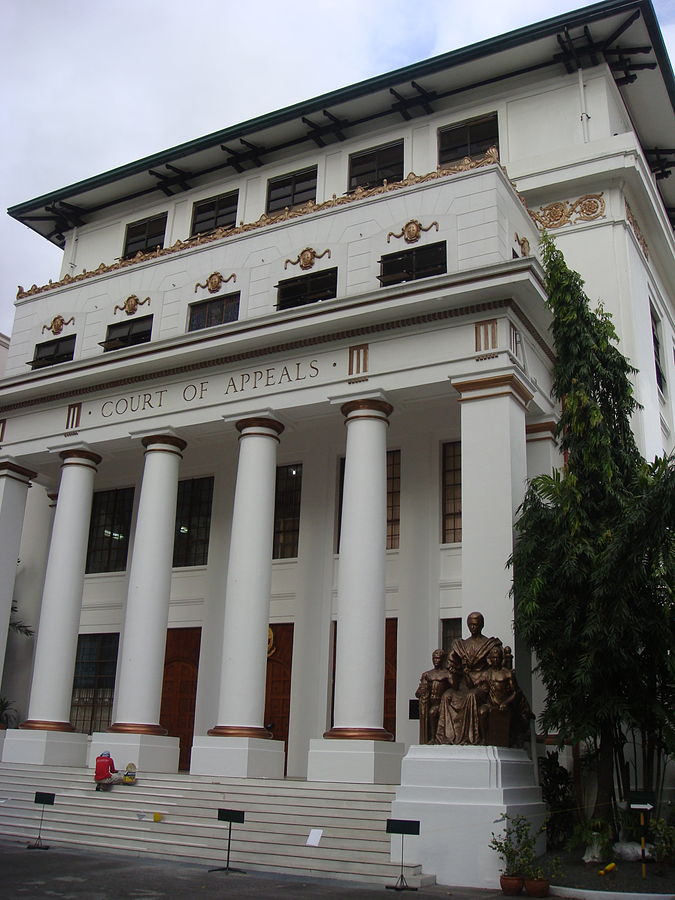Headline
Ombudsman to have ‘more teeth’ under federalism

FILE: The Federal Ombudsman Commission will be composed of a Chief Ombudsman, four Associate Ombudsmen (one in Luzon, Visayas, Mindanao, and the National Capital Region), Overall Deputy Ombudsman for administration, Deputy Ombudsman for military and law enforcement, and a Deputy Ombudsman for every Federated Region, he said (Photo By Ramon FVelasquez – Own work, CC BY-SA 3.0)
MANILA — President Rodrigo R. Duterte’s Consultative Committee (ConCom) to review the 1987 Constitution said Thursday it wants to give the Ombudsman “more teeth to fight against corruption” in the proposed federal Constitution it is drafting.
ConCom senior technical assistant and spokesperson Ding Generoso said the panel is proposing to transform the Office of the Ombudsman into the Federal Ombudsman Commission, which is tasked to prioritize complaints filed against high-ranking government officials, such as presidential appointees and/or those occupying supervisory positions, complaints involving grave offenses, as well as complaints involving large sums of money and/or properties.
“We can say that there has been really no significant reduction in graft and corruption in government. We’re talking about hundreds of billions of money lost. We have to speed up the investigation and prosecution and resolution of all graft cases and avoid what has become a buzzword in the government’s fight against corruption, the inordinate delay,” Generoso said in a press conference in Pasay City.
The Federal Ombudsman Commission will be composed of a Chief Ombudsman, four Associate Ombudsmen (one in Luzon, Visayas, Mindanao, and the National Capital Region), Overall Deputy Ombudsman for administration, Deputy Ombudsman for military and law enforcement, and a Deputy Ombudsman for every Federated Region, he said.
“By having a Commission, you can have more commissioners looking at different cases. So instead of just one, the Ombudsman, looking at all the cases, you can now divide the number of cases among the different commissioners.
It will now be a collegial body,” Generoso said.
He said that aside from speeding up the investigation and prosecution of cases, it will also avoid “inordinate delay,” which has been the cause of the dismissal of so many cases in the Sandiganbayan.
The Federal Ombudsman Commission may also preventively suspend any officer or employee pending an investigation if in their judgment the evidence of guilty is strong and (1) the charge against such officer involves dishonesty, oppression or gross misconduct or neglect in the performance of duty; (2) the charges would warrant removal from the service; or (3) the respondent’s continued stay in office may prejudice the case filed against him.
Generoso said that the preventive suspension shall continue until the investigation is terminated by the Federal Ombudsman Commission but in no case shall it exceed six months, except when the delay in the disposition of the case is due to the fault, negligence or upon the petition of the respondent, in which case the period of such delay shall not be counted in computing the period of preventive suspension provided.
Moreover, the ConCom gave the Federal Ombudsman Commission an additional power to prevent delays.
“No writ of injunction shall be issued by any court to delay an investigation being conducted by the Federal Ombudsman Commission unless there is a prima facie evidence that the subject matter of the investigation is outside its jurisdiction,” Generoso said, reading from the draft article.
The creation of a Federal Ombudsman Commission is among the proposed provisions on Constitutional Commissions set to be voted on in an en banc session next week.
Under the current 1987 Constitution, there are four Constitutional Commissions, namely, the Civil Service Commission (CSC), Commission on Elections (Comelec), Commission on Audit (COA), and Commission on Human Rights (CHR).
However, under the Federal Constitution it is drafting, the ConCom proposed to expand the four to six, namely, the Federal Civil Service Commission, Federal Commission on Elections, Federal Commission on Audit, Federal Ombudsman Commission, Federal Commission on Human Rights, and Federal Competition Commission.





















